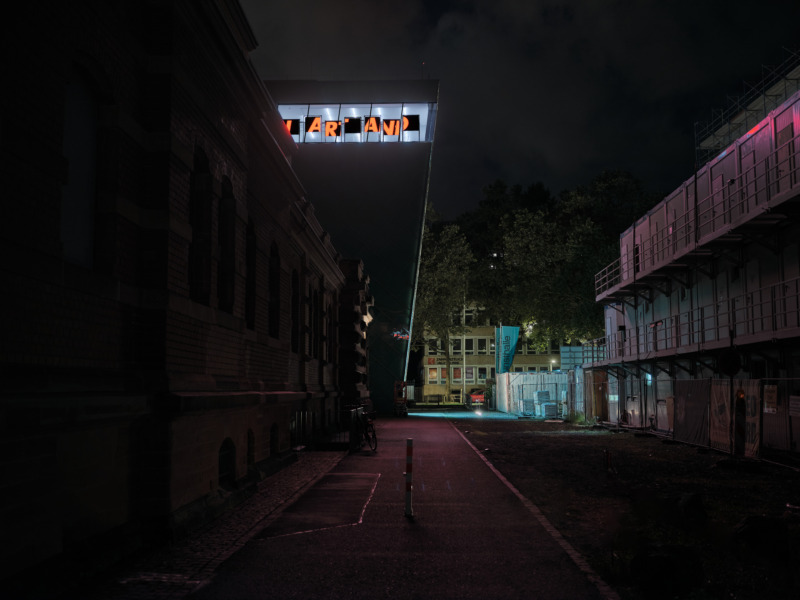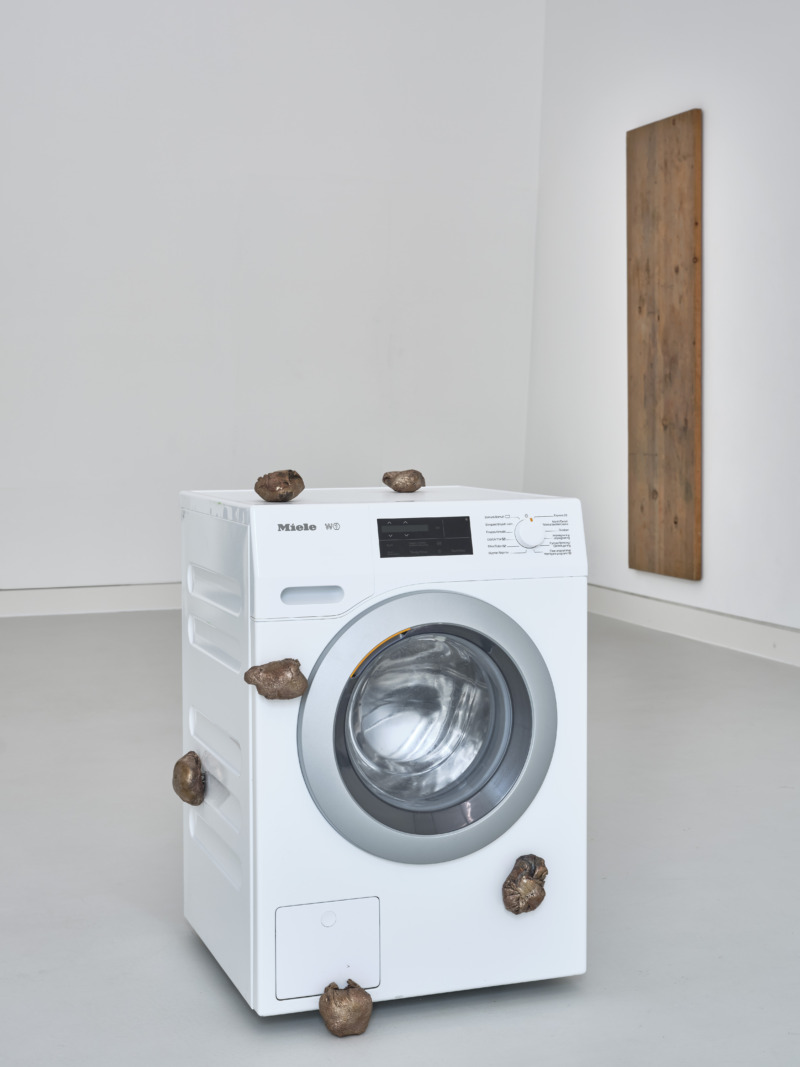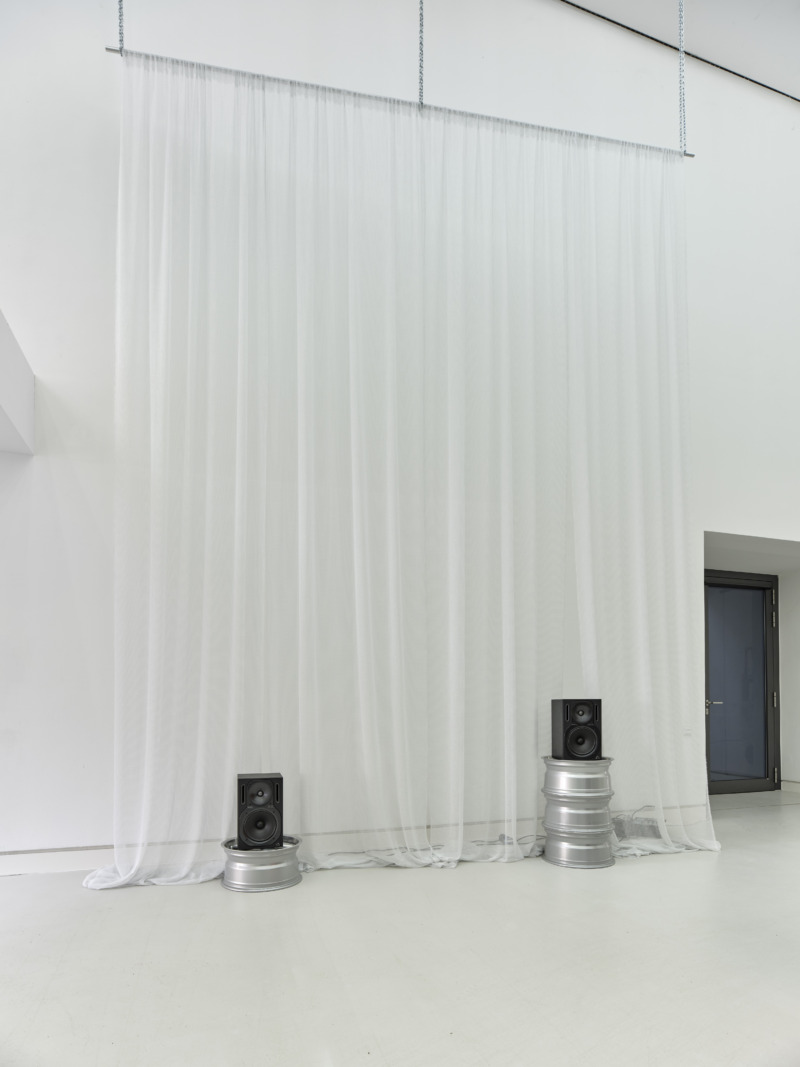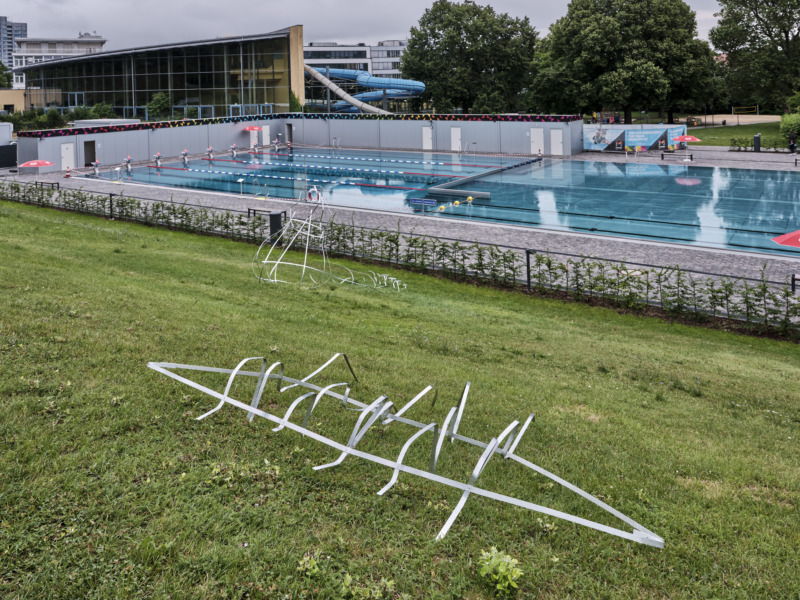
Theoretisch geht’s mir gut
05/07/21—22/08/21
Hannah Black
Samantha Bohatsch
Johannes Büttner
Pilvi Takala
Ausstellung in der Kunsthalle Mainz und dem Mainzer Taubertsbergbad
theoretical (adjective) – [purely] conceptual, not
[sufficiently] respecting reality – Duden
“How are you doing?” We’re confronted with this question about our own wellbeing every single day. On the one hand it’s small talk, an opening gambit for all kinds of analogue and digital conversations. Yet it’s also possibly the most intimate question you can ask someone without apparently disregarding boundaries altogether. It’s a question that addresses the recipients directly, takes them as they are, expresses an interest in them personally. Or it seems to leave them to themselves. In some cases, the promoter standing in front of a restaurant calling out “Hey! How are you?” might achieve more than just stopping us in our tracks. We could, in fact, actually end up briefly asking ourselves what state we really are in, besides we make a decision about whether we should look more closely at what they have to offer, or if we should just move on. We could come to the conclusion: “Good. I’m doing good.”
But is “good” as good as it gets? What would be an optimal situation? When are body and mind in harmony? Who determines when “good” has been achieved? Does the “in theory” preceding “I’m doing fine” in the exhibition title testify to a deficiency? Is it about actual wellbeing or simply about challenging what we consider to be good? And when is it no longer about the individual, when is this “good” transposed to the social or economic level?
An honest answer to the simple question “How are you doing?” would reveal vulnerability. Thus, the question essentially compels us to take evasive action. Inasmuch as In theory, I’m fine there is a danger of not corresponding to expectations or norms, violating societal stereotypes or losing the affiliation to a group, the question of one’s own wellbeing swiftly exposes the fragility of internal and external circumstances.
In the process we are permanently under observation – and these are observations that we subject ourselves to, but also those emanating from the society we would like to belong to. We constantly experience actions being classified, categorised and standardised, with the consequence that we try to become better in order to make our own existence meaningful. But this is something we only receive through external legitimation, and it can only work by means of comparison. The demands and categorisations of society specify role models that we conform to, and these determine how we experience our bodies.
In theory, I’m fine is a unique cooperation between Kunsthalle Mainz and Mainzer Taubertsbergbad: five international contemporary artists explore this statement and its implications in an exhibition space and a swimming pool, integrating the human body into sensual multimedia negotiations. The group exhibition In theory, I’m fine invites the visitor to explore the body as material via which the world and its boundaries can be felt, and view it as a surface for projecting both their own expectations and those of others.
The exhibition is supperted by Ministerium für Familie, Frauen, Kultur und Integration Rheinland-Pfalz and Danish Arts Foundation.
Curated by Lina Louisa Kraemer.


Installationsansicht: Benedikte Bjerre: Libero (eat, pray, love), 2021, industriell hergestellte Objekte (Waschmaschine, Tischplatte), 21 Bronzegüsse, Courtesy the artist. Foto: Norbert Miguletz

Installationsansicht: Samantha Bohatsch: SWM, 2020, verschiedene Medien, Aluminiumstange, Ketten, Alufelgen, Zwei-Kanal-Sound-Installation, 3:32 Min., Courtesy the Artist. Foto: Norbert Miguletz
